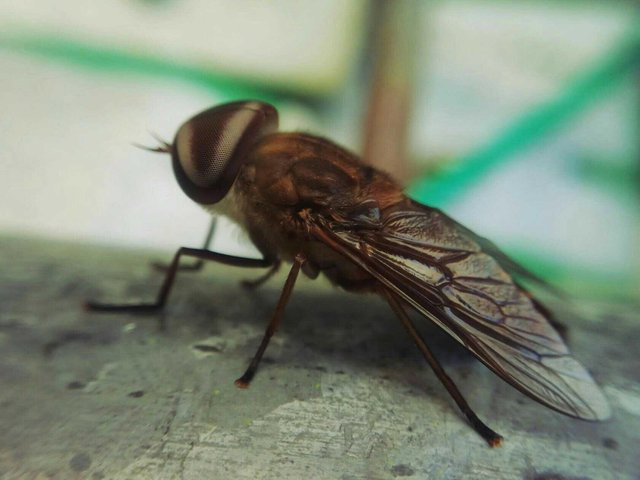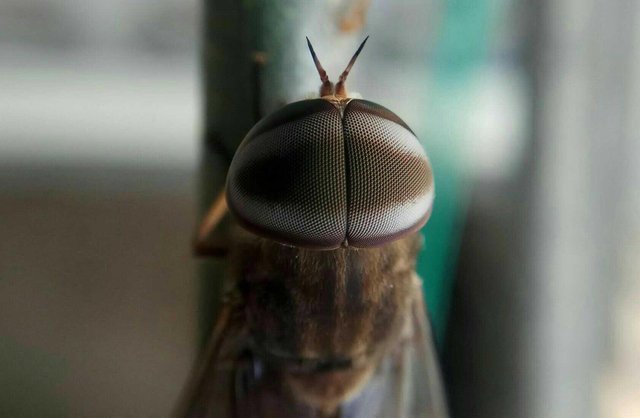Scientists Assess Hunger Makes the Brain Stay Smart Even if Sleep Is Not Right.
As is known by those who have tried to stay awake after eating full, eating can encourage drowsiness. New research on fruit flies suggests otherwise that hunger could be a way to stay awake without feeling dizzy or mental barriers.

Scientists at the University of Washington at St. Louis discovered that hunger causes the need for nutrition to suppress the need for sleep. Just like humans and rats, fruit flies can not survive without sleep. However, in fruit flies engineered to be sensitive to sleep deprivation, hunger can increase the sleeping survival time by almost threefold.
The researchers showed that the ability to withstand the effects of lack of sleep is linked to proteins that help the brain of fruit flies regulate the storage and use of lipids that are a type of molecule including fats such as cholesterol and fat-soluble vitamins such as vitamins A and D. " used to make people fall asleep or keep people awake, all targeted at a number of pathways in the brain, all related to neuro transmission, "said Paul Shaw, PhD, assistant professor of neurobiology and anatomy.
"Modifying lipid treatment with drugs can provide us with a new, more effective way or less side effects in tackling sleep problems." The study was published online on August 31 at PLoS Biology. The findings add new challenges to the complex relationship between sleep and dietary metabolism. Scientists know about a decade ago that sleep deprivation causes obesity and plays a role in the development of diabetes and coronary disease. To date, nobody has linked lipid-related genes with sleeping arrangements.
Clay Semenkovich, MD who is a University of Washington lipid expert but not directly involved in the study said that the result fits with the growing understanding that organisms use lipids more than just energy storage. "It's clear that fat functions as a signaling molecule in a variety of contexts," says Semenkovich, a Herbert S. Gasser Professor of Medicine. "If you identify the lipids involved in sleeping arrangements and look for ways to control them, you can reduce the pain associated with sleep deprivation or the need to stay awake." Shaw uses fruit flies as a model of sleep effects in higher organisms.
He was one of the first to prove that fruit flies enter a condition comparable to sleep, indicating that fruit flies have an inactive period in which greater stimuli are needed to wake them up. Just like humans, fruit flies that sleep less a day will try to replace it by sleeping more the next day, a phenomenon indicated as sleep debt. Fruit flies that lack of sleep also showed less performance on a simple test of learning ability. Research in other labs shows that hunger or fasting hunger, resulting in reduced sleep time. More recent research also shows that hunger can alter the level of gene activity that regulates the storage and use of lipids.
Shaw's laboratory previously demonstrated that fruit flies with mutations in biological time genes accumulate sleep debt faster and begin dying after staying up for at least 10 hours. Matt Thimgan, PhD, a postdoctoral fellow researcher, reported in a newspaper that starving fruit flies take more time to wake up, and starved fruit flies with biological time gene mutations can last up to 28 hours without sleep. Scientists tested starving flies and sleep deprivation with two signs of sleep debt, enzymes in saliva or saliva and the ability of flies to learn to associate light with unpleasant stimuli. Both test results show that starving flies are not sleepy.
"From an evolutionary perspective, it makes sense," Thimgan said. "If you are starving, you want to cognitively assure that you are at the top of the game, to increase your chances of finding food rather than being food for others.

" The scientists found an effect similar to hunger in fruit flies where a gene called lipid storage droplet 2 (LSD2) is disabled. After lack of sleep, fruit flies with LSD2 mutations are less likely to sleep for long periods and still score high on a learning test.
"LSD2 mutants seem to constantly rotate lipids through their storage depots in cells, put them in and release them very quickly," Thimgan said. "Disabling LSD2 seems to make cells difficult to hold lipids and use them properly, and we think this disrupts the ability of brain cells to respond to sleep deprivation." Researchers are trying to identify specific lipids that are affected by the loss of LSD2.